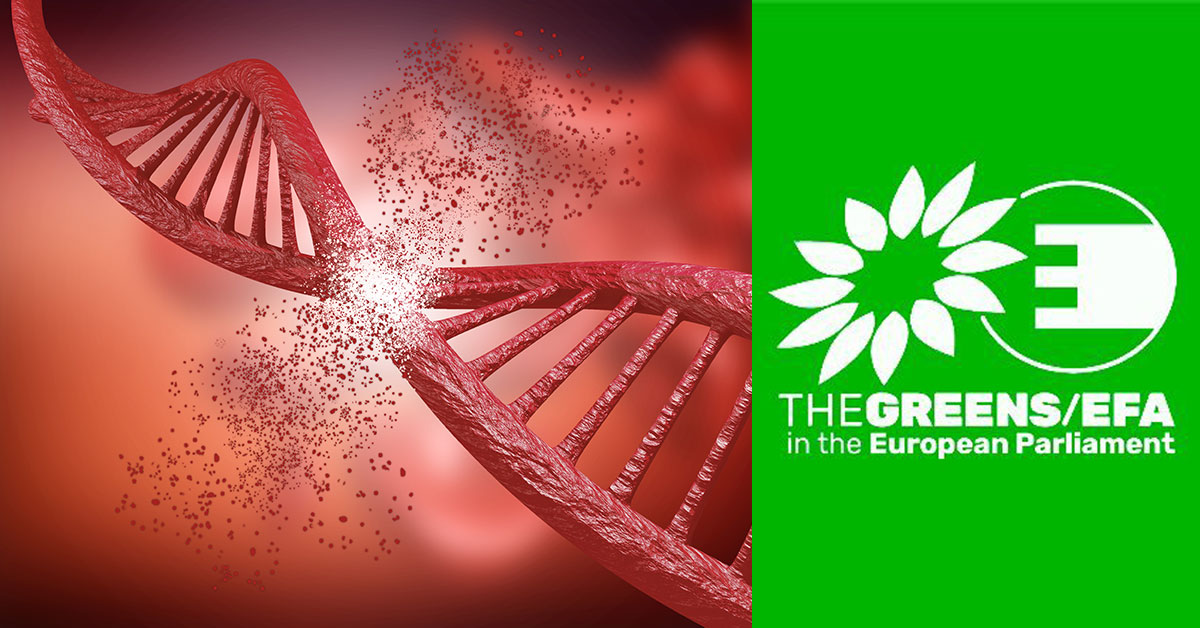
After dissident group of German Greens lobbied for gene editing to be de-regulated, spokesmen re-affirm Party's commitment to strong regulation under the EU's GMO laws
In the wake of the publication of a paper by a minority dissident group of German Greens lobbying for the de-regulation of gene editing, two prominent Greens in the European Parliament and German Parliament have made a statement re-affirming the position of the Green Party in favour of continued strong regulation.
The statement follows votes by the Greens last week, when the German and European Parliament Green groups both decided to keep the Party's position in favour of regulation. Although a minority wanted a change, there were very clear majorities in favour of regulation.
Martin Häusling, spokesman for agricultural policy of the Greens/EFA in the European Parliament, commenting on the position paper, referred to the European Court of Justice ruling of 2018 to the effect that gene editing techniques give rise to GMOs. He said (English translation by Google/editing by GMWatch), “The paper voted on today reaffirms the clear position of the Greens/EFA group from all over Europe to heed the precautionary principle and the full implementation of the 2018 European Court of Justice judgment. For us, de-regulation of the procedures and thus the elimination of risk assessment, monitoring, labelling and traceability are out of the question. The paper is a strong statement for a systemic transformation of our agricultural systems towards agricultural-ecological systems.
"Attempts to use genetic engineering to alleviate the symptoms of intensive farming, such as the much-touted drought tolerance of plants, are doomed to fail. Relying on the genetic engineering processes leads to an even stronger concentration of the seed market on a few players and plays into the hands of the large corporations. The dependency of farmers on the few dominant chemical giants must not be further increased by these risky technologies.
"In the detailed statement, we European Greens call for, among other things, a strict procedure by the European Commission in the event of non-compliance with the release requirements regarding genetic engineering by the Member States. This must be flanked by consistent control and ensuring the traceability of imports. The appeal for a global moratorium on gene drives will also be made again.”
Freedom of choice
Harald Ebner, spokesman for genetic engineering and bioeconomy policy in the German Parliament, said, “New genetic engineering is also genetic engineering and must be regulated in exactly the same way. This is what the European Court of Justice (ECJ) ruled in July 2018. The parliamentary group continues to stand for the precautionary principle and freedom of choice.
"According to surveys, a majority of Germans reject genetic engineering in agriculture and food. We must continue to ensure freedom of choice for you and for GMO-free agriculture and food processing: GM products must carry a GMO label wherever genetic engineering has been used in their production. We reject, among other things, the de-regulation of the existing genetic engineering framework, which is demanded by the agrochemical industry, because only with regulation can risk assessment and labelling of genetically modified organisms continue to be guaranteed.
"There is nothing to suggest that genetically modified plants or animals could answer the unresolved complex problems and questions of world nutrition such as access to land and water, the end of civil wars, and the issues of training and knowledge transfer. CRISPR/Cas in particular is a potentially enormously in-depth process that intervenes directly in the genome, which is why respect for future generations requires that de-regulation does not deprive them of their ability to act and make decisions. With the release of genetically modified organisms in particular, extreme caution is still required because no one has been able to guarantee that they can be retrieved from the environment."
No contribution to food security
The position paper of the Greens in the German Parliament makes a strong case for the inadequacy of genetic engineering in solving the world's food problems. It says, "There is still no convincing evidence that GM plants actually make a contribution to improve the world food situation. In contrast, many examples show that agricultural genetic engineering represents the tip of the iceberg of agro-industrial production - and has the effect of putting food security and food sovereignty at risk rather than protecting it."
On the supposed accuracy and precision of gene-editing techniques, the paper says, "The picture that is often drawn for the public of minimally invasive 'precision surgery' does not correspond to the true state of knowledge, as shown by numerous current publications on on- and off-target erroneous effects and undesirable changes in the genome as a side effect of the targeted genetic modification. The CRISPR/Cas9 system in particular leads to many on-target and off-target effects on plants and animals, which are critically discussed in science because the possible consequences of these incorrect cuts are varied and serious for the target organism.
"It is noteworthy that the number of unexpected on- and off-target effects has up to now been systematically underestimated because they were not checked for at all or they were only checked for with inadequate methods. Contrary to popular belief, whole genome sequencing (which is complex and expensive) is rarely used for quality assurance."
The full position paper of the Greens in the German Parliament is available in German here and in a Google English translation here. The final position paper of the Greens in the European Parliament is expected be published shortly.










